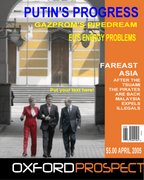Is the Monarchy Really Necessary?
By Nicholas Newman December 2005
In these times of meritocracy, it is surprising that there are still western parliamentary democracies that still hold on to the concept of monarchy. After all, you would not choose your dentist on the hereditary principle – yet many parliamentary democracies continue to cling on to this – perhaps anachronistic tradition.
Critics of monarchy see the principle of monarchy as an expensive, unrepresentative and unnecessary office of state. In fact they argue that precedent demonstrates that the Monarch’s rights to be consulted encourage and warn her ministers, demonstrate that the office is a toothless tiger. In fact they argue that the Queen has no real power as demonstrated during the 1980’s under Thatcher. It is reported that the Queen was ignored by Thatcher over the issues of over South African sanctions [1]and the US invasion of Grenada[2] in the 1980’s.
As for the Monarch safeguarding the country’s democratic traditions, modernizers[3] suggest the monarch could do little to prevent a political extreme government from passing laws to ban the opposition, abolish elections and impose religious laws on the country. In fact all the Queen could do is perhaps delay matters.
Republicans argue that the Monarchy is a redundant office of state, it can no longer claim to be the upholder of traditions or even claim the fiction of the allegiance of the military. At the time of the Falklands War Victory Parade[4], precedent suggests the Queen takes the salute as head of state and the armed forces. Yet it was the PM Thatcher who took the salute, demonstrating again the political reality that the Monarch is Britain’s virtual leader, but the PM is the actual leader of the nation.
Supporters of the current system would argue that the office of monarchy is still a necessary function in a western parliamentary democracy; in that the Monarch may not have much actual power, but it is argued has varying degrees of influence on the branches of government.
In terms of actual power the monarch has little and what there is, is governed predominately by precedent. [5]Such as the right to be consulted and agree to a dissolution of parliament in preparation for an election, as was the case of the Major government that hat had lost an important vote on 22 July 1993 and sought approval from the Sovereign for dissolution – if it lost a vote of confidence the next day.
Monarchist claim that the Monarch acts a guardian of democracy. This it does in two main ways, in denying legitimacy to potential coup makers, as was the case of the 1981 coup in Spain when King Juan Carlos[6] denied support to insurgents, and that any other alternative as Australians conclude during their 1999 Monarchy referendum in denying the wealthy elite represented by the politicians of further powers.[7]
Apart from that past prime ministers claim that Britain’s Queen provides a useful reminder that the Prime Minister is not only responsible to just a political party, but also to the nation as whole and have claimed the Queen has proved a considerable help in their job, providing a useful experience and private audience.
So as to the question is the Monarchy really necessary, the debate is still open, having a constitutional monarchy is not the only way to preserve a western parliamentary democracy. The question that will need to be answered is finding an alternative constitutional solution that will meet the political needs of an increasingly federal style of government that Britain is becoming. But since there is no strong desire at present to abolish the Monarchy, the system is likely to continue to evolve, with perhaps as in the case of Japan, the Monarch’s only daughter becoming the heir apparent
Tuesday, December 13, 2005
Subscribe to:
Comments (Atom)

